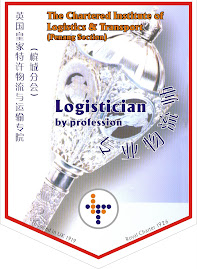What is an Arbitrator's Duty of Disclosure?
| | By |
How do the parties know that the person they selected has these attributes and will do these things? In classic arbitration they knew and trusted the individual. The arbitrator was the wise old man on the fishing boat dock, whom everyone knew, and who was trusted to know more about fish than anyone else. The fishermen were able to place complete confidence in him because they knew him intimately. Today we have gone to the opposite extreme. The arbitrator who is sufficiently close to a party to have instilled this type of confidence is for that very reason arguably disqualified. The arbitrator selected ideally has no relationships with any of the parties or their counsel. The parties must attempt to select the right person based in large part upon the information they can obtain from the potential arbitrator. The disclosure process has thus become the modern surrogate for the common knowledge of the marketplace.
The classic formulation of the disclosure rule is found in Cannon II of the Code of Ethics for Arbitrators in Commercial Disputes (AAA/ABA 1977) ("the Code"):
"An arbitrator should disclose any interest or relationship likely to affect impartiality or which might create an appearance of partiality or bias."
INTEREST
An Arbitrator must disclose a relevant "interest". The Code defines this as a "direct or indirect financial or personal interest in the outcome of the arbitration." A direct interest is not difficult to identify or define. Where the arbitrator will receive economic or personal benefit as a result of a potential award, this obviously must be disclosed. The Supreme Court has likened the role of an interested arbitrator to that of the judge is an old case where a small part of the judge's income consisted of fees collected from convicted defendants. The economic incentive to convict, however trivial in amount, was a "... manifest violation of the strict morality and fairness Congress would have expected on the part of the arbitrator..." In a state court case a party-appointed arbitrator was found to have violated his ethical obligations by failing to disclose that he was charging a contingent fee for his services in the matters.
The California Arbitration Act has micro-managed the disclosure obligation to near absurdity, but the legislature's thinking is nevertheless instructive. "Direct interest" is equated with "a financial interest in the subject matter in a proceeding or in a party to the proceeding (Cal. Code Civ. Proc. 1281.9(e), 170.1(a)(3)). An indirect interest is a similar interest held by the arbitrator's spouse or minor child, or a similar interest held by the arbitrator or by the arbitrator's spouse as a fiduciary. The courts have regarded "interest" as a matter bearing upon the integrity or the appearance of integrity which lies as the core of the arbitral process. However trivial, interest should be disclosed. This is a per se rule, not one of reason, and justly so.
RELATIONSHIPS
The obligation to disclose relationships is much more complex, and in the context of vacatur has engendered much more litigation. The Code lays down the general rule that disclosure extends to existing or past financial, business, professional, family or social relationships which might reasonably create an appearance of partiality or bias. Such relationships may be those personal to the arbitrator, that is, relationships which the arbitrator may have personally with any party or its lawyer or with any identified witness. They may also be derivative, in the sense of relationships involving members of the arbitrator's family, employer, partner or business associate.
There is a dual element of reasonableness here. Both the duty to disclose interests and the duty to disclose relationships implicate a reasonable effort to investigate their existence. Following such investigation the potential arbitrator should disclose those relationships which are likely to affect impartiality or which might reasonably create an appearance of partiality or bias. But this is not a situation where the arbitrator should deliberately try to come close to the bright line. When in doubt disclose.
I will not try to characterize the myriad cases that have dealt with failure to disclose material relationships. By way of example, awards have been overturned where arbitrators failed to disclose such relationships as a long-term social relationship with an attorney for a party, concurrent legal representation of a party in unrelated litigation, prior business dealings with a party, a prior business relationship with a party or principal of a party, and prior communications with a party concerning the subject matter of the arbitration. Similarly, failure to disclose that a party is a present or past client of the arbitrator's firm has been held ground for vacatur, although failure to discover and disclose that a party was a client of the arbitrator's former firm--unknown to the arbitrator--was not. An arbitrator who is affiliated with a law firm should perform a conflict check in order to disclose any past or present representation of a party to the arbitration by any member of the firm. There is no clear standard as to the extent to which a potential arbitrator should investigate and disclose business relationships of other members of the firm or of their family members. Nor is there a clear standard as to the extent to which a potential arbitrator should investigate and disclose relationships of the provider organization with which he or she is affiliated. A fair rule of thumb is that if in the nature of things the arbitrator is aware of these relationships and a reasonable inference can be drawn that they may influence the arbitrator's thinking they should be disclosed. The same should be true as to business relationships of the arbitrator's close family members.
BIAS
Cannon II of the Code requires disclosure of interests or relationships which might create an appearance of partiality or bias. Although actual bias may well be subsumed by this requirement, there is no specific recognition in the Code of bias as a separate subject of disclosure. AAA Rule 19 identifies bias as a separate disclosure item. Bias may exist for reasons other than interest or relationships. "Evident partiality" on the part of a neutral arbitrator is a ground for vacatur of an award under Uniform Arbitrator Act 12(a)(2) and Federal Arbitration Action 10(a)(2).
The standard for vacatur is appearance of bias; actual bias need not be shown. One may not be aware that he or she has a mental attitude or disposition toward or against a party to the arbitration or is prejudiced in relationship to the subject matter of the dispute, and even if such attitude or disposition exists it may be impossible of proof. Neither the parties' necessarily partisan views nor the strained relations which may arise or expressions of opinions which may be uttered during the course of a proceeding are competent evidence of bias or prejudice.
A potential arbitrator may have formed an opinion as to the appropriate outcome of a matter before it is presented. This would be especially true in a case where the public, including the potential arbitrator, has been bombarded by news stories and media speculation. While a competent neutral should be able to set his or her preconceptions aside and decide the matter on the evidence presented, a case can be made for the proposition that the state of mind of the arbitrator should be a subject of disclosure like any other relevant fact. Consistent with this the Guidelines adopted by the British Chartered Institute of Arbitrators emphasize that an arbitrator must be without bias or the appearance of bias and require disclosure of all facts or circumstances that might give rise to reasonable doubt as to impartiality.
KNOWLEDGE, OTHER PROCEEDINGS
The authors of the California statute focused on three-additional areas of disclosure: an arbitrator must disclose personal knowledge of disputed facts concerning the proceeding; an arbitrator must disclose prior and pending matters in which the arbitrator served or serves as a party arbitrator or attorney for a party in the arbitration; and an arbitrator must disclose prior and pending matters involving a party or attorney in the arbitration in which the arbitrator served or serves as neutral arbitrator. The latter disclosure requirements are appropriately limited to protect the confidentiality of the other proceedings.
ACCEPTANCE; VACATUR
A potential arbitrator is not automatically disqualified upon making these types of disclosures. To the contrary, if the arbitrator proceeds without objection following full disclosure the arbitrator is deemed to have been accepted and the objections to have been waived. Any resulting award may not be attacked based upon interest or relationships which are fully and timely disclosed.
The ethical standards relating to disclosure, and the legal standards relating to vacatur of an award are facially similar, but the vacatur cases should not necessarily provide the basis for evaluating ethical obligations. The arbitrator's responsibility is at the outset to the parties and to the process. A court, faced with the question whether to vacate an award after the arbitration has been completed may consider the impact upon the party opposing vacatur. If the opposing party is innocent of any wrongdoing and will be faced with the burden and expense of a new hearing this may be relevant. On the other hand if the party opposing vacatur was equally cognizant of the disqualifying interest or relationship and remained silent this too may be considered. And if the party seeking vacatur held back to see how the case turned out before asserting a known interest or association this too should be weighed, and the party might well be deemed to have waived the objection or to the subject to estoppel.
NON-NEUTRAL ARBITRATOR
One accepting the position of a party-appointed non-neutral arbitrator is subject to a duty of disclosure in order that the other party and the other arbitrators may have some insight and understanding into the non-neutral's involvement. The disclosure should be sufficient to provide such insight and understanding but need not be as detailed or specific as that of a neutral arbitrator. A party-appointed non-neutral arbitrator is not subject to disqualification by the other party based upon matter so disclosed.
刘茂亮
来源:法制日报
仲裁法是建立和谐社会、优化经济发展环境的重要法律制度。仲裁法实施近10年来,我国的仲裁事业取得了丰硕成果。到目前为止,全国185个仲 裁机构选聘了约5万多名以专家为骨干的高素质的仲裁司,荟萃了法律、经济、技术、金融、房地产等各方面优秀人才。近十年来,仲裁司们以特有的智慧和热情, 妥善地解决了14万件民商事纠纷,为维护市场经济的健康发展作出了重要贡献。
仲裁司在仲裁活动中正确处理与仲裁庭其他成员、仲裁委员会、专家咨询委员会以及与当事人之间的关系,对于妥善解决民商事纠纷,彰显仲裁特色,体现仲裁优势,提高仲裁案件的调解、和解率、快速结案率、提高仲裁裁决的自行履行率具有重要意义。
一、仲裁庭成员之间的关系
仲裁司应以谦虚、谨慎的态度处理与仲裁庭其他成员之间的关系。我们认为,仲裁的成功与否不是取决于仲裁庭某一个人的主观努力,而是需要仲裁庭 其他成员,包括当事人及其代理人的理解、合作与配合。仲裁庭三位仲裁司是合作群体,不是利益个体,要有团队意识、大局意识、整体观念。仲裁庭三位仲裁司在 仲裁活动中,要相互尊重,谦虚相待,默契配合。特别是我们要明确,首席仲裁司不一定就是水平最高的,而是仲裁制度规定的。仲裁司之间(仲裁司与当事人之 间),由于大家的经历、职业不同,看问题的角度、方法的不同,而对案件中事实的认定、证据的判断、法律的理解上有较大出入,这是很正常的。谁是谁非,正确 的程度多大,在学术上往往也有争论,不宜以偏概全,应该允许有探讨的余地。
(一)仲裁司的权威不是单靠权力,而是靠学识、见地、能力、个人修养等诸多因素确立的。仲裁司既不能没有主见也不能固执已见,以权威自居。仲 裁司特别是首席仲裁司,要有虚心听取他人意见的气度,能够以宽容态度、宽阔的胸怀理解和审视分歧。首席仲裁司如果主观武断,盛气凌人,骄傲急躁,自以为 是,刚愎自用,就容易破坏仲裁庭的合作气氛,必然会引起律师、当事人的不满与反感,就很难达到公正仲裁纠纷的目的,更不能取得解决纠纷的最佳结果。
(二)每个仲裁司都不要对别的仲裁司傲慢无礼,或者自私自利,处处事事以我为中心,否则就不能虚心研究正反不同的证据材料,就不能听取来自各方面的意见,就会影响判断证据的客观性,损害认定事实、适用法律的正确性,损害仲裁的公正、权威。
如果仲裁司在仲裁庭卖弄学术、文人相轻,这样肯定不能很好地解决纠纷,反而会“失望”于当事人,影响仲裁司包括仲裁机构的形象。当事人会想,“你仲裁司就这种水平,内部还不和谐”,焉能服人。所以,仲裁司一定要有团队意识、大局意识、整体观念,维护仲裁庭的形象。
仲裁以解决纠纷为根本目的。在仲裁实践中,有的仲裁司写出累累万言的仲裁裁决书,美其名曰“写了厚厚一本书”。这是什么裁决书?自认为裁决书 写得越厚,当事人就会觉得其水平多高。这其实未必是好的裁决书,也未必是称职的仲裁司,不值得提倡,还是要以解决问题为先。裁决书充分讲理是必要的,但是 要把握好这个度,道理有时不必多讲,有时你讲得越多,一方当事人的脸上越挂持不住,对仲裁司就越反感。
另外,仲裁司对自己的经验、学识不要盲目自信。如果仲裁司不熟悉某个专业,即使当事人选其做仲裁司,也要向当事人说明情况,拒于选定。
二、仲裁司与仲裁委员会之间的关系
仲裁不是独裁。仲裁司、仲裁庭接受仲裁委员会的监督是仲裁法的应有之义。仲裁法规定了中国仲裁协会对仲裁司的监督(违法违纪行为)。实际上, 大量的监督要由仲裁机构来进行。我们认为,无论仲裁司的自律还是仲裁实体的裁处,都应当接受监督。为什么?仲裁法第十二条规定了仲裁机构由三分之二的法 律、经济贸易的专家组成,专家的指导作用应涵盖实体的监督,而非“依势以干非其类”、干预仲裁(实践证明这是非常必要的)。切不可认为仲裁庭独立仲裁、仲 裁司独立仲裁就不要监督了。
三、仲裁司与专家咨询委员会的关系
专家咨询委员会是仲裁委员会为了解决复杂疑难问题,组织社会各界法律专家或者相关行业的专家组成的一个智囊团。有些案件(是由仲裁庭自己提出 要进行专家咨询的)即使专家也不好定论的情况是存在的。如何对待专家咨询委员会研究后作出的咨询性意见?我们认为,专家咨询委员会研究后作出的咨询性意见 仲裁庭应当耐心听取,因为专家咨询委员会和仲裁司的目的、方向是一致的,都是为了更为妥善地解决纠纷。如果仲裁庭不接受专家咨询委员会的意见,应当报告仲 裁委员会,并说明理由。
四、仲裁司与当事人之间的关系
我国传统上是典型的“熟人社会”,每个人都是人际关系网的一个节点,特别是我们办任何事都喜欢找熟人。然而,市场经济的发展又将民事、商事活 动推向了一个“生人社会”。在这个新的环境中,诚信就成为一切民事活动的价值核心。解决民商事纠纷,参与仲裁活动,当事人找熟人的观念在当前的诉讼积习驱 使下是难以避免的。他们往往可能到处打听仲裁司的基本情况,暗中获取其信息,来达到自己的目的。这样,靠人情还是靠诚信?仲裁司只靠诚信。仲裁司只要稍稍 偏离诚信轨道,仲裁就会变成“不拿刀的强盗行为”,当事人就会“吃不了兜着走”。有人讲,在法制社会,最有权力的人就是能给别人造成合法伤害的人,不诚信 就会导致这种后果。从仲裁法实施近十年来看,仲裁司总体上做得是好的,值得欣慰。
仲裁的信誉由仲裁司创造,仲裁司队伍素质的高低决定着仲裁事业的兴衰成败。仲裁司必须厚德载物、诚信为本,从而奠定自己在当事人心目中可信赖 的地位。作为一名仲裁司,必须公道正派、公正廉洁,这是起码的要求。仲裁司办理案件靠的是知识、学问、智慧。除了衣着要高雅、谈吐要文雅、举止要儒雅、有 品味外,气节、人格方面,也是有定位的。要堂堂正正做仲裁司,坦坦荡荡行使仲裁权,不能给那些忙于和仲裁司拉关系、走门子,试图左右仲裁公平天平、影响裁 决结果的人为伍,丧失气节。仲裁司不当行使仲裁权就会砸了仲裁机构的牌子。
(一)仲裁司应当独立、公正,平等地对待双方当事人,秉持公心,本着自己的善良之心和对法律精神的理解进行裁决。不得代表或偏袒任何一方当事 人的利益,更不得作为任何一方代理人行事。从这个意义上讲,仲裁司有渊博知识、有处理纠纷的能力,但不一定就是合格的仲裁司,还必须有处理纠纷时的善良之 心。无论当事人的职业、身份、社会地位、财产状况、企业的性质、所在地域、案件标的额的大小等有何不同,仲裁司都要一视同仁、同等关注,不能厚此薄彼。当 事人相信仲裁司有高尚品质和对法律的正确把握,相信仲裁司能够公正仲裁,才选定你当仲裁司。选定了你,但你决非是某一方的代理人。因此,仲裁司决不能辜负 当事人的这份期望和信任。
需要指出的是,仲裁司虽然是被一方当事人选定、委任的,但却是受各方当事人所信赖的。受各方当事人委托仲裁案件,万不可忘已之位,忘记行使仲裁权之源,徇私情,载一方之欲而乘物以逞,与当事人一方俯仰甚善,做出枉法裁决。
(二)在仲裁活动中,仲裁司必须廉洁公正。
廉洁是仲裁公正的基本保障。廉洁是指仲裁司在仲裁活动中,不利用仲裁权谋取个人私利,不接受当事人请客、送礼及其提供的任何利益。廉洁也是公 正的前提,但廉洁不等于公正。公正是指正直,公平合理,不循私偏袒。公正不仅要求仲裁司廉洁,还要求仲裁司诚实,防止主观片面性。仲裁司要对双方当事人的 法律权益作出终局裁决,关系重大,惟有廉洁公正,方能担此重任。
仲裁司权力很大,仲裁裁决出现错误纠正的渠道很少,仲裁司又是松散性地分布在各个部门,靠什么手段去保障仲裁司的公正性、保证裁决的质量?我 们认为,靠律已。在仲裁活动中,仲裁司必须律已,谨遵执业操守,克制私欲,洁身自爱、珍惜名誉。对于可能影响案件独立、公正裁决的要依法回避,依规定进行 信息披露。不与涉案的当事人、代理人私底下接触,严禁办“金钱案”、“关系案”、“人情案”。给当事人造成经济上和心理上的伤害,也给整个仲裁机构抹黑。 在仲裁活动中,要“临财勿苟得”,“见利不更其守”,守道忘势,择善固守。俗话说,“吃人家嘴短,拿人家手软”、“乘人之车者载人之患”。为追求私利有求 于人,必然受制于人,心理必然有压力,在审理案件过程中,就难以超脱,不能主持公道。坚持廉洁公正,就能够站在公正的立场上,毫无私欲及个人顾虑,没有偏 见地处理案件争议。在当事人有此类表示时,要冷静自持,切不可廉价地讨好某一方,取悦某一方,毁坏自己的名声,破坏仲裁机构威信。
为了纯洁仲裁司队伍,把仲裁司队伍建成“铁打的营盘”,国务院法制办几年前曾经发过《关于进一步加强仲裁司、仲裁工作人员管理的通知》,就仲 裁司违法违纪行为的后果作了规定。在仲裁活动中,仲裁司出现徇私情、做出枉法裁决的,仲裁机构要将其除名,还要进行全国通报。一旦被通报,可以想见,他将 在整个系统、行业甚至社会上名誉扫地。我们认为,仲裁司经过多年奋斗取得的社会地位和声望,是不愿也不屑于做这种事的,为这种事将自己的名声毁掉,实在得 不偿失。
(三)在仲裁活动中,仲裁司应当务求中立、耐心地听取当事人的意见。
仲裁司应以谦虚、谨慎的态度处理与当事人之间的关系。仲裁活动中,仲裁司的一举一动,关乎当事人的利益,双方都十分敏感,所以需慎言。注意说 话的时机、说话的方式、技巧等,避免引起当事人误解,猜忌。如果你说话不当、训斥当事人,粗暴甚至无理,可能会被当事人认为你有倾向性、有偏袒。
另外,怠忽职守、敷衍塞责,就会影响当事人对仲裁司的尊重与信赖。而这种尊重与信赖,往往是仲裁成功的重要因素。有的仲裁司尽管业务精深,但 是他还总是告诫自己说,“许多争议,案情复杂,当事人之间矛盾尖锐,稍有不慎就可能出现判断错误,给当事人带来不必要的损失”。“仲裁案件如临深渊,如履 薄冰,唯恐不能客观全面地审查判断证据。”他们认真、严谨,一丝不苟,对工作高度负责的态度值得钦佩。
(四)仲裁司在仲裁活动中要拘小节、举轻若重。
仲裁司在仲裁活动中除了要公正、廉洁、敬业、审慎、勤勉、尽职尽责外,要拘小节。在开庭、评议时不能擅离岗位或从事与仲裁无关的其他事项的行 为。比如,随便进出仲裁庭,随意接打手机都是不尊重他人的表现,对当事人而言也是不负责任的。在仲裁开庭时更要注意小节。小节不小,如果不注意,就会损害 仲裁司的形象,挫伤当事人的感情。
仲裁司要尊重当事人,要耐心、善意,努力营造和谐氛围,创造合作环境,不能居高临下、盛气凌人,更不要与当事人争论,否则容易造成仲裁司与当事人的对立情绪,影响案件的仲裁。
.jpg)










No comments:
Post a Comment